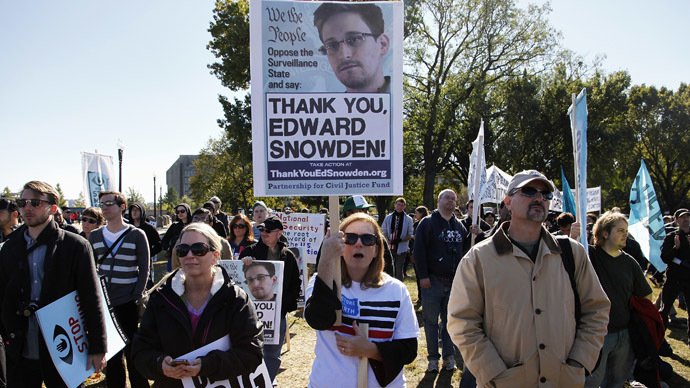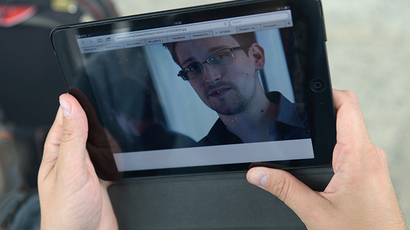Most Americans applaud Snowden’s exposure of NSA mass surveillance – poll

Almost one year after Edward Snowden unveiled the NSA’s bulk data collection, more than half of employed Americans believe he was right to do so, according to a recent poll. More than 80 percent still fear their digital privacy is being undermined.
NSA blowback: Top 8 political scandals sparked by
Snowden leaks
A total of 1,007 Americans in employment were questioned for the
survey, and 55 percent of them said they approved of Snowden’s
leaking classified NSA files. Forty-four percent said the move
was right because mass surveillance violated their constitutional
rights.
The poll has been published by encrypted cloud storage provider
Tresorit, who commissioned third-party firm YouGov to do the
research.
“No doubt, Snowden brought the issue of privacy to the fore
of public awareness, especially as many then argued that 2014
would be the year we awaken to the need for security and privacy
online,” Tresorit CEO Istvan Lam said.
Eighty-two percent of respondents said they believed their
personal information is still being held by the US government,
while 81 percent said their privacy was undermined by
corporations for business purposes.
“In a post-Snowden world, it’s clear that consumer confidence
regarding their private, online documents is extremely low,”
Lam said.
Tresorit’s poll findings have, however, been challenged by
another poll for NBC, following their broadcast of an exclusive
interview with Edward Snowden.
Read Snowden’s comments on 9/11 that NBC didn’t
broadcast.
Only 24 percent of NBC survey participants believed Snowden did
the right thing by exposing confidential data on NSA’s mass
surveillance, while 34 percent of respondents disapproved of his
actions.
Forty percent were not sure of their attitude to Snowden’s leaks,
while one-quarter of respondents confessed to not even knowing
who Edward Snowden was.
However, a plurality of younger respondents (aged between 18 and
34) approved of Snowden’s actions, with 32 percent of them in
favor of them and 20 percent against.














